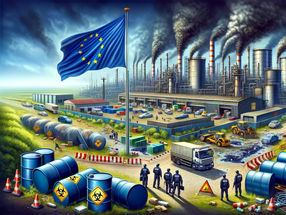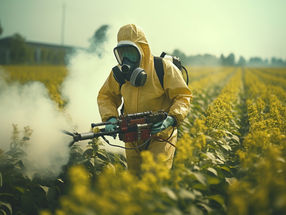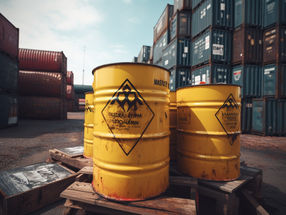India isolated in Rome for playing into industry hands
India faced isolation of an unprecedented nature in the last day of the Fourth Conference of Parties (COP4) of the just concluded Rotterdam Convention in Rome. The Indian delegation led by Mr R H Khwaja and Mr M K Pandey of the MoEF were put in a spot when country after country, especially under-developed countries from Africa and Asia, such as Belize, Sudan, Oman and many others joined in accusing India for its entrenched position of not allowing the listing of Endosulfan, a highly toxic pesticide, into the list of hazardous substances that needed Prior-informed consent from the receiving country in global trade. India is the only country blocking the listing of endosulphan and countries wanted that the COP 4 text takes note of the fact that "a country" had opposed the listing.
Earlier in the day, another industrial chemical Chrysotile Asbestos also faced the same fate of non inclusion due to opposition from India, Kyrgyz Republic, Ukraine, Kazakhstan, Russia, a non party, and a few others which are producers and exporters of this chemical. Chrysotile had come up for listing in COP3 in Geneva in 2006 and had been twice recommended for listing by the Chemical Review Committee of the Convention.
Due to opposition from a handful of countries, now both these substances have been deferred for decision to 2011 in the next COP of the Convention. "Thanks to a few countries which undermined and disrespected the consensus of poorer nations, we have ensured that countries exporting these poisons do not inform the importing countries of their dangers" said Madhumita Dutta of the Corporate Accountability Desk who is attending this conference as observer in the delegation of the Rotterdam Convention Alliance.
The Prior-Informed Consent (PIC) list is basically a list of hazardous substances that are subject to a regulation of mandatory information exchange among the signatory countries. This information exchange basically has two parts – one is for a country which has banned or severely restricted a chemical to inform other parties about the domestic regulations, and the other is for exporting countries to inform the other countries of its export through an export notification. While on the onset these are fundamental rights that need to be provided by any sovereign state, this Convention establishes a simple mechanism of doing this. The Convention was adopted in 1998, and since then there has been 4 COPs including the one this year.
Most read news
Other news from the department politics & laws

Get the chemical industry in your inbox
By submitting this form you agree that LUMITOS AG will send you the newsletter(s) selected above by email. Your data will not be passed on to third parties. Your data will be stored and processed in accordance with our data protection regulations. LUMITOS may contact you by email for the purpose of advertising or market and opinion surveys. You can revoke your consent at any time without giving reasons to LUMITOS AG, Ernst-Augustin-Str. 2, 12489 Berlin, Germany or by e-mail at revoke@lumitos.com with effect for the future. In addition, each email contains a link to unsubscribe from the corresponding newsletter.




























































